Studying internationally with Erasmus Mundus: Copernicus Master in Digital Earth
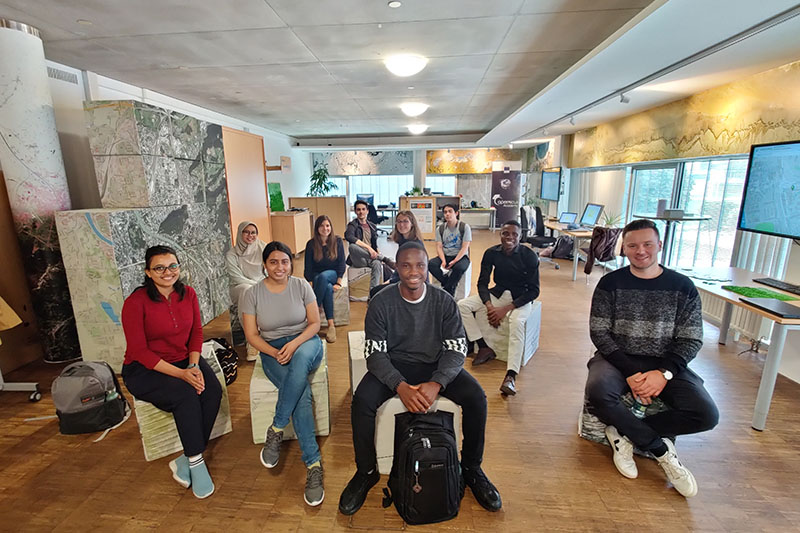
Is it a good idea to take the big step and decide to study abroad? And is that even possible during COVID-19 times? The answers are: YES and YES! Studying internationally is possible and nothing should stop you from undertaking such an adventure. You don’t believe me? Well, then the following article which is about my experiences with studying abroad during the pandemic, might change your opinion. Enjoy!
Erasmus Mundus Joint Master Degrees (EMJMD) are a great option to participate in a programme of International Studies. You are not only going to boost your academic career, but you will have the unique opportunity to be part of an encounter that will allow you to broaden your mind and enrich your personality.
What are Erasmus Mundus Joint Master Degrees?
These programmes take place in at least two universities in two different countries, and have a duration between two and four semesters (60 or 120 ECTS). Considering the fact that people from all over the world are involved, EMJMDs are taught in English.
I should tell you, since we are talking about distinguished programmes, applicants are expected to meet a number of requirements related to their prior academic competences and motivation. That explains why financial support through Erasmus+ scholarships can be received to cover your participation costs, and the fact that the completion of such programme provides you with a recognized degree from more than one institution.
Copernicus Master in Digital Earth
I am currently enrolled in the second intake of the EMJMD Copernicus Master in Digital Earth (CDE). I can happily say that I am able to participate in a high study programme related to the field that I love, Geography, in the best possible learning environment (and abroad!).
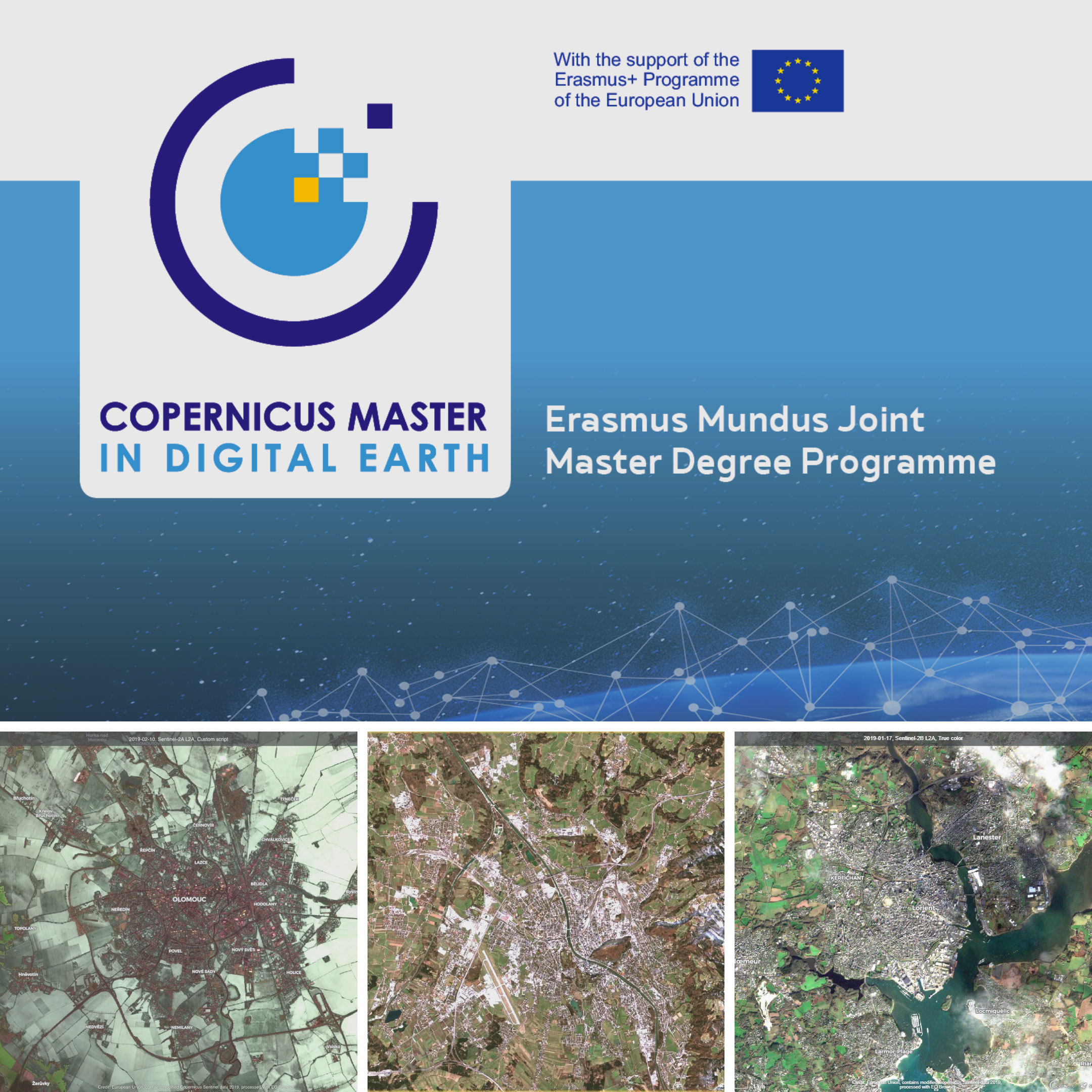
What is CDE about then?
In the current digital era we are constantly producing data that needs to be dealt with. This includes geospatial data (information containing location as an attribute, acquired by satellite services or in situ), which need to be employed in the best possible way to benefit society in a broad range of aspects: from environmental issues and resource management to spatial and urban planning, among many others. Many useful applications can be derived from geospatial data interpretation and analysis, bringing us closer to problem solving. To be familiar with the necessary methods and techniques, several students have been given the opportunity to join this programme.
We are a community formed by very different students with diverse backgrounds, both academically and culturally, but with a common interest that connects us all.
Well, our interests are not 100% the same, since our programme is divided into two tracks depending on our specialization in the field. While we all spend the first year at the Paris Lodron Universität Salzburg, where we acquire the basics in Geoinformatics and Earth Observation, in the second year we are heading to another university, in a new country.
Half of us will go to the Université Bretagne Sud (Vannes, France), where studies are oriented towards the Geodata Science discipline; and the other half to the Univerzita Palackého v Olomouci (Olomouc, Czech Republic), more focused on Geocommunication and Geovisualization.
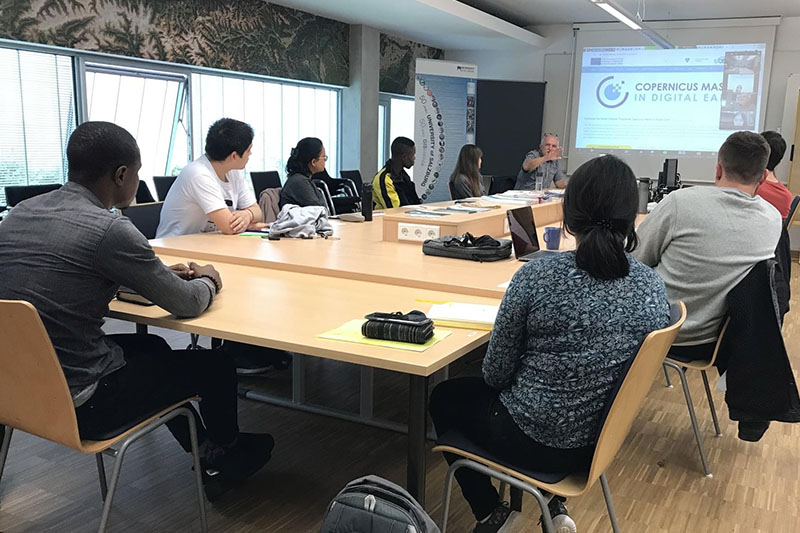
Salzburg is always a good idea for studying abroad
But for now we are in Salzburg, and let’s not forget about the charming atmosphere this city has to offer and what a lovely experience it is to live here.
Prior to CDE, during my Bachelor’s Degree at the Universitat de Barcelona, I had the chance to come to the Paris Lodron Universität Salzburg as an Erasmus student. This journey brought me in touch with the city, its people and culture, as well as the Geography Department, where I could see a different way of approaching the contents of my study field. It turned out to have a very positive impact on my personality, not only academically, but also culturally, since I could surround myself with people from all over Europe and beyond.
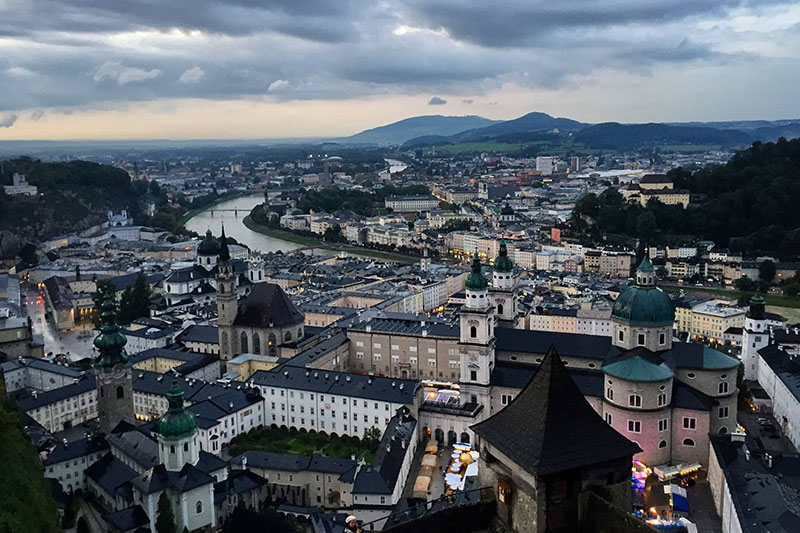
Whatever the reason was, I had in mind that at some point I would come back to this welcoming place.
Currently, I have the chance to be back here. When I found out about the existence of this programme I thought it was the perfect combination between developing my career in the geospatial field and having the chance to experience life abroad again. Then I submitted my application in January of the current year 2020, and a couple months later, when I got the notification that I had been accepted, I could not have been happier. I should tell you that as a non-German-speaker (my mother tongues are Catalan and Spanish) it is a plus for me to be able to live in a German-speaking country, since I have been learning it for the past few years. It is a challenging language but it is surely worth it!
It is the time to make the most of it and gain knowledge through the academic side of this opportunity, as well as taking part in an exchange programme which includes people from all over the world. In the current intake we are 15 students from 13 different countries. This diversity is a remarkable chance to get to know very different realities and ways of seeing the world, and can be nothing else but a positive experience to embrace.
COVID-19 as a roadblock for international students
Sure, it does not sound ideal that your abroad student experience will overlap with a global pandemic. Times are not easy for anyone these days, but the current situation did not stop our programme from taking place, and we are very lucky to be part of it.
In September, when measures were less strict and following the established rules, we participated in orientation sessions for two weeks. During that time we got to know each other, some of the professors, as well as more details about the programme. It was a lot of fun. Since currently all meetings and lessons are online, we look back and appreciate the time we got to spend with each other in person. Nevertheless, we are assured that our studies will proceed according to schedule, and we get all the necessary assistance remotely.
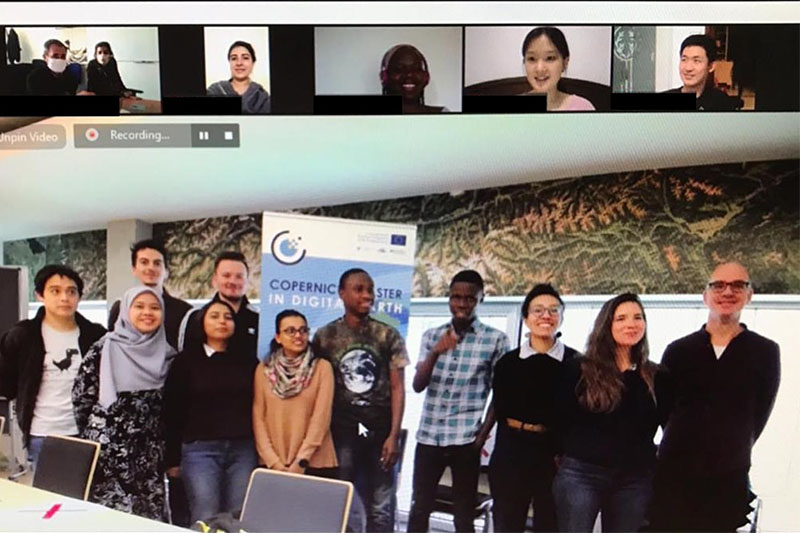
Another obstacle relates to the current travel restrictions, affecting the mobility options during the course of our studies. Even though some of us have the possibility to travel to our respective countries, for example, due to the winter holidays, we are subject to provide a negative PCR test and/or quarantine when crossing borders.
It is also important to mention that, because of these limitations, four classmates have not been able to make it to Austria yet. Still, they have the possibility to keep up with the classes online, and we really hope they will join us in Salzburg very soon!
Did you find any reason to not want to live such an unmissable experience so far? I don’t think so!
It is pretty clear that every opportunity that includes quality studies and cultural exchange will lead to a fulfilling and gratifying end result. Surely there is a programme matching your interests, just as it happened to me with Copernicus Master in Digital Earth. I hope that you will take my experience into account, make a big step forward and apply to an EMJMD programme!
Yours Anna
P.S: By clicking here, you’ll find another interesting article on the EMJDM in German!
Photo-Credits:
Salzburg: Anna Porti Suárez
Other pictures: Interfaculty Department of Geoinformatics – Z_GIS




